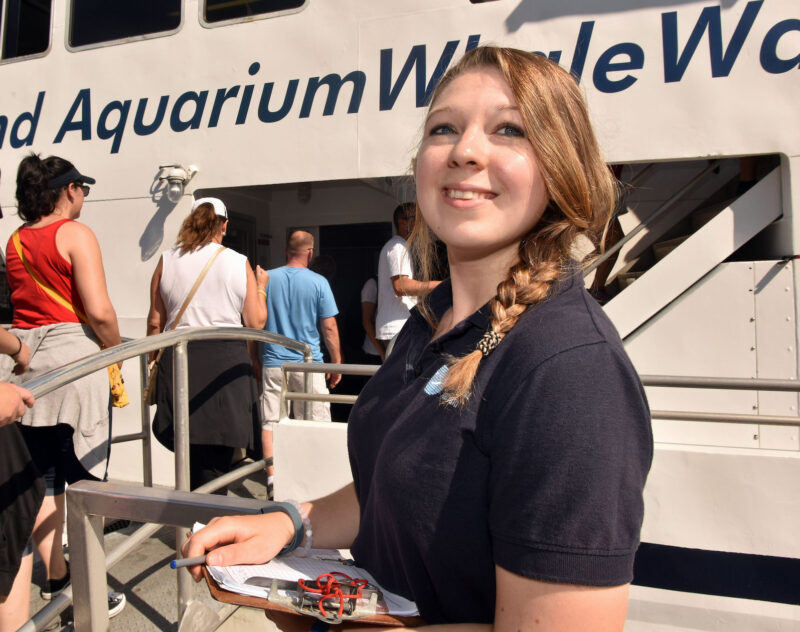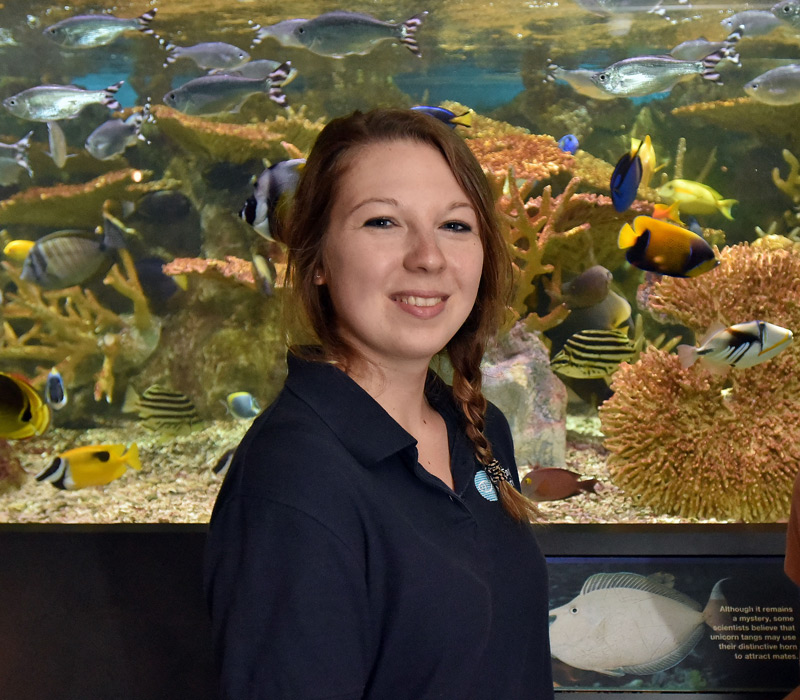Linnea Mayfield ’17
Major: Women’s and gender studies
Internship: New England Aquarium
Environmental research: “As education and research intern at the New England Aquarium, I educated passengers on the ecology of the area, and assisted in the recording of data about the wildlife we encountered almost daily. The research consisted of recording behaviors, species, particular individuals encountered (specifically, humpback whales and fin whales), associations of these individuals with one another and other species, and weather data.”
Sea worthy: “I spent the fall semester of my junior year studying marine biology in Christchurch, New Zealand. These courses involved hands-on experiences in the lab and in the field, such as a collaborative abalone retagging project and the study of marine mammal physiology, as well as a field trip that took me on my first ever whale watch. After this experience, my interest in marine biology concentrated on the study of cetaceans. I found out that New England Aquarium was offering a new internship on their whale watch vessels, which encapsulated both my interest in researching whales and my desire to increase bioliteracy in the public. It seemed perfect.”
Preparing to embark: “I took ‘Biology of Whales’ through the marine studies consortium, which includes Wheaton. This course gave me an immense advantage when I began my internship, as I was well-versed in whale physiology, behavior and foraging ecology. Also, my experience as a resident advisor at Wheaton helped me develop skills in public speaking and interpersonal communication. As a resident advisor, I’ve had to interact with students and professionals in all contexts, which has helped me immeasurably in passenger interaction and education.”
Navigating skills: “Through this internship, I acquired valuable skills—from public speaking to working in the field. The most valuable aspect of the work was data collection and analysis, and working in an ever-changing field conditions. Working on the water has taught me to contend with an environment that is constantly changing and unpredictable. It has helped me to develop quick thought and action, and has given me a taste for future work environments. One favorite moment was when I successfully identified a whale in the field. It is rewarding to know that I am beginning to recognize individuals among 800 whales that populate the area.”
Collecting data: “My biggest challenge was learning the ropes of data collection. Every trip is different and whale activity can vary in intensity and speed. My earliest trips were chaotic and my unfamiliarity with protocol made them slightly overwhelming. It was a steep learning curve, but with the help of the naturalists and my fellow interns, I was able to pick up tips and tricks to make the work easier. I was surprised by how much each trip and the opinions of passengers can vary. But for me, every day is successful because I got to be out on the water, watching whales.”
Charting new territory: “This internship helped me focus my interest within the wider field of biology. My field experience and expansion of my knowledge of local ecology of Stellwagen Bank, Massachusetts Bay, and the wider Gulf of Maine area will help me in my final year of study and has given context to my past studies.”
A love of science: “I hope to create a career around my continued study of cetaceans. This internship has been ideal in introducing me to the field conditions that I might be working in, and some of the areas of study I could pursue. This also internship has taught me that while I love educating the public on all aspects of conservation and whale biology, my true passion lies in the science.”


